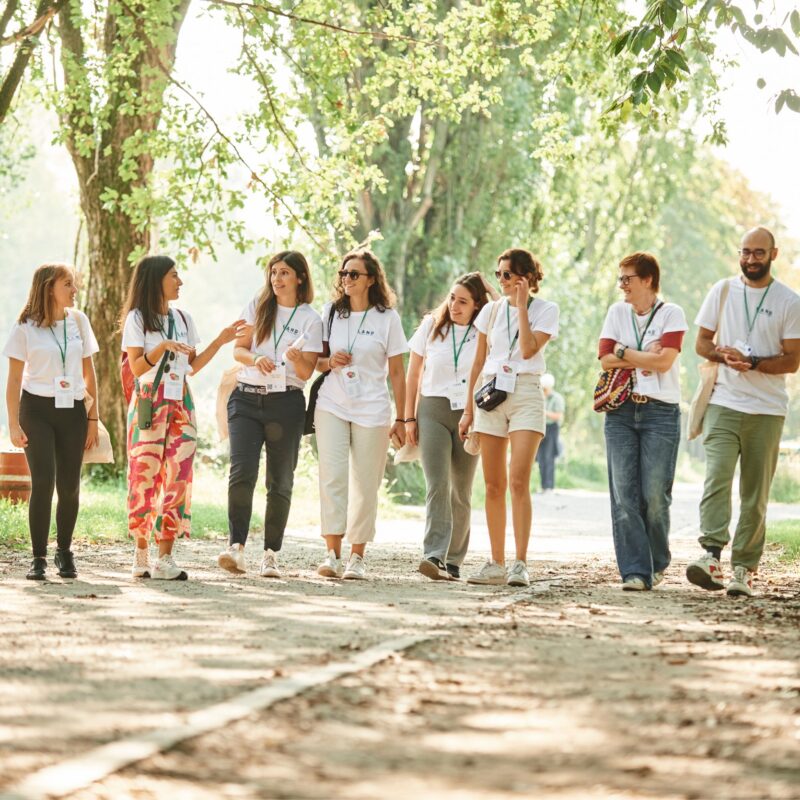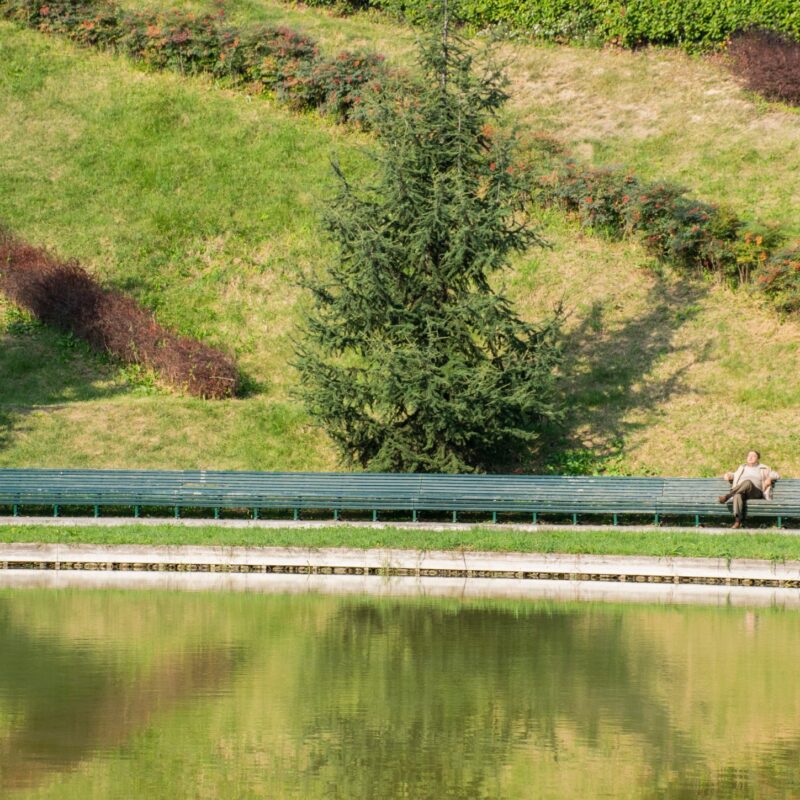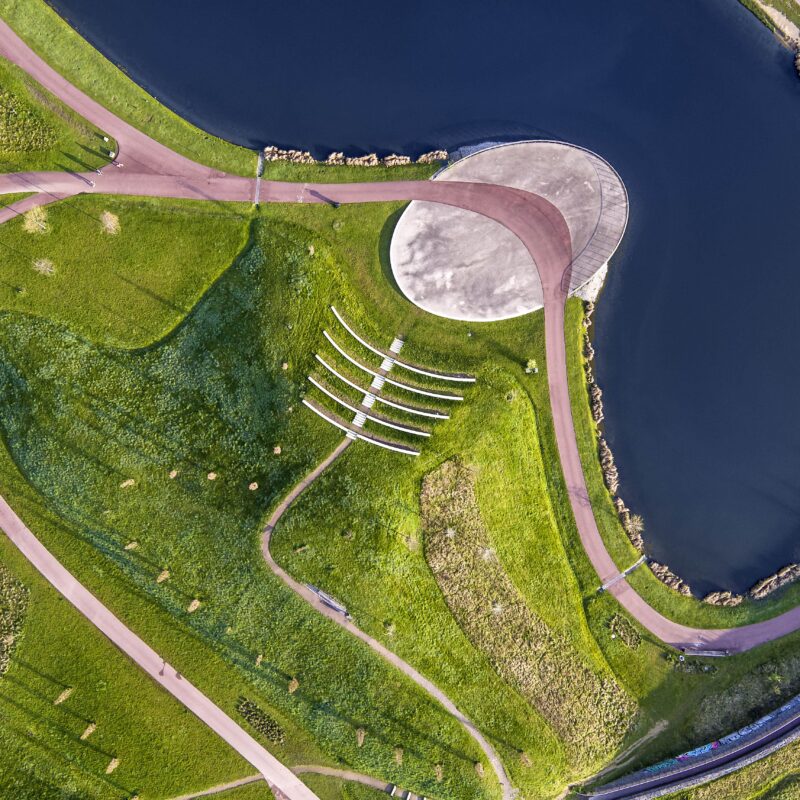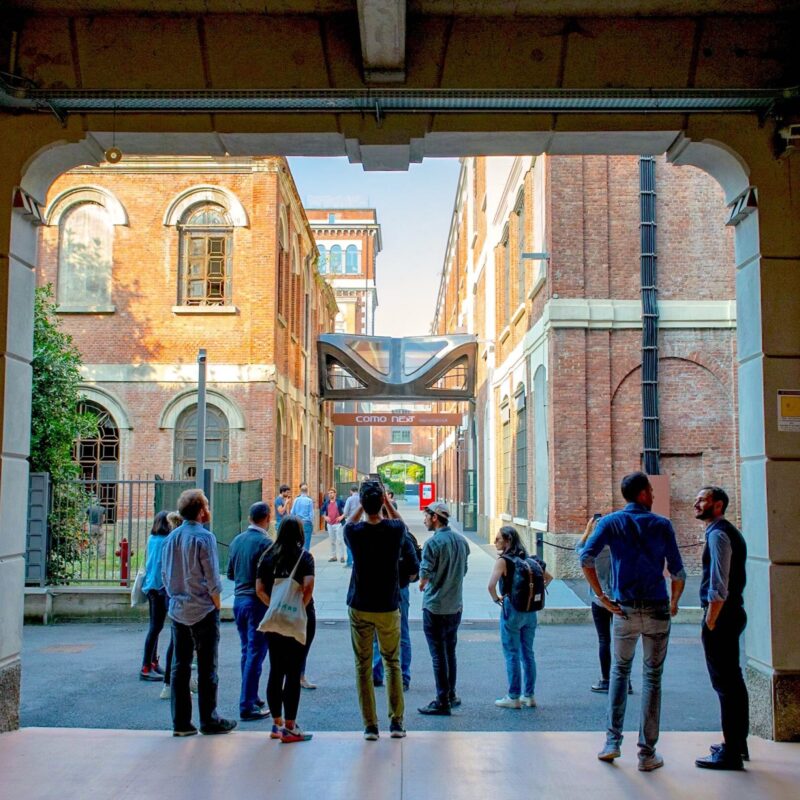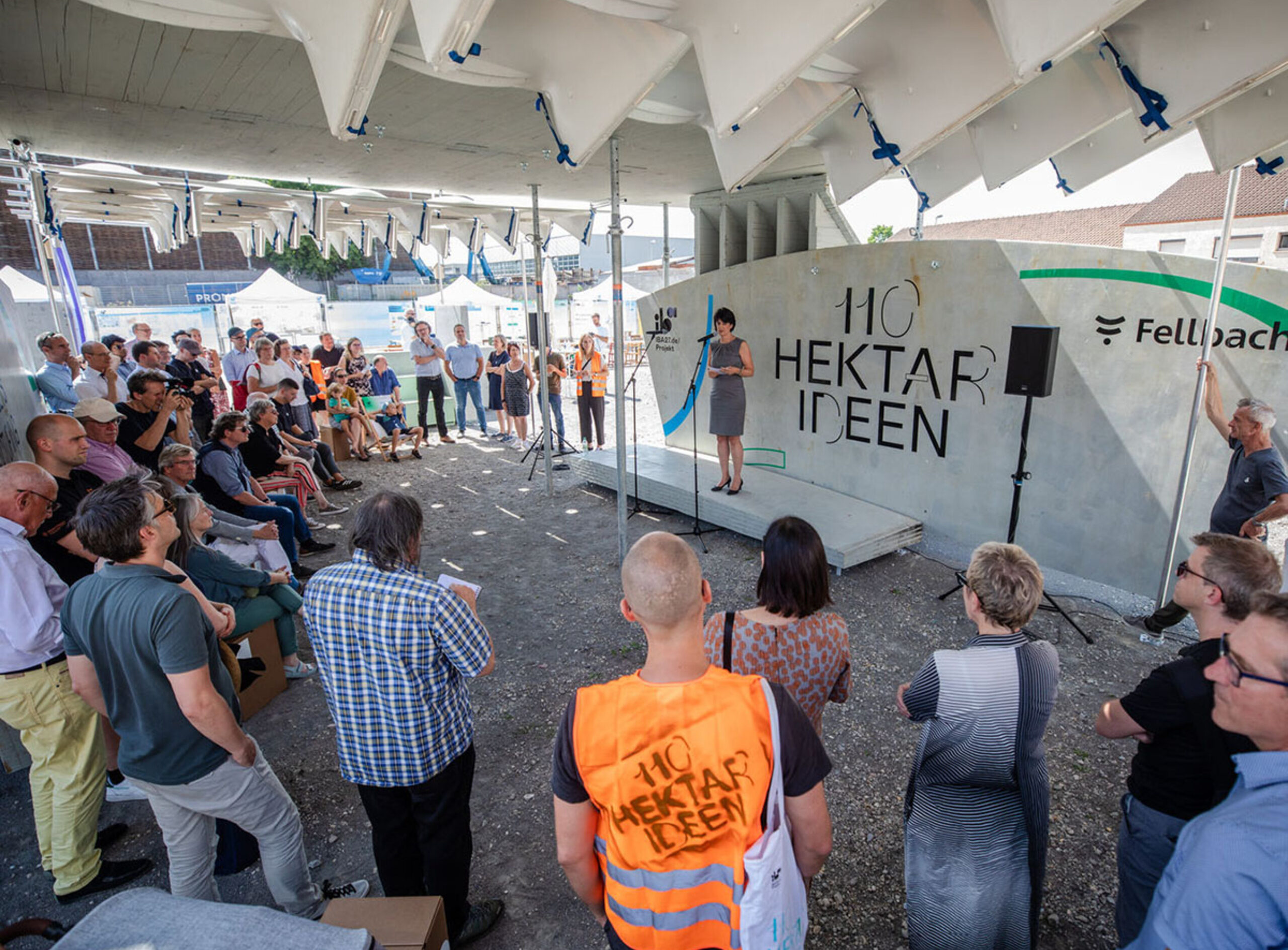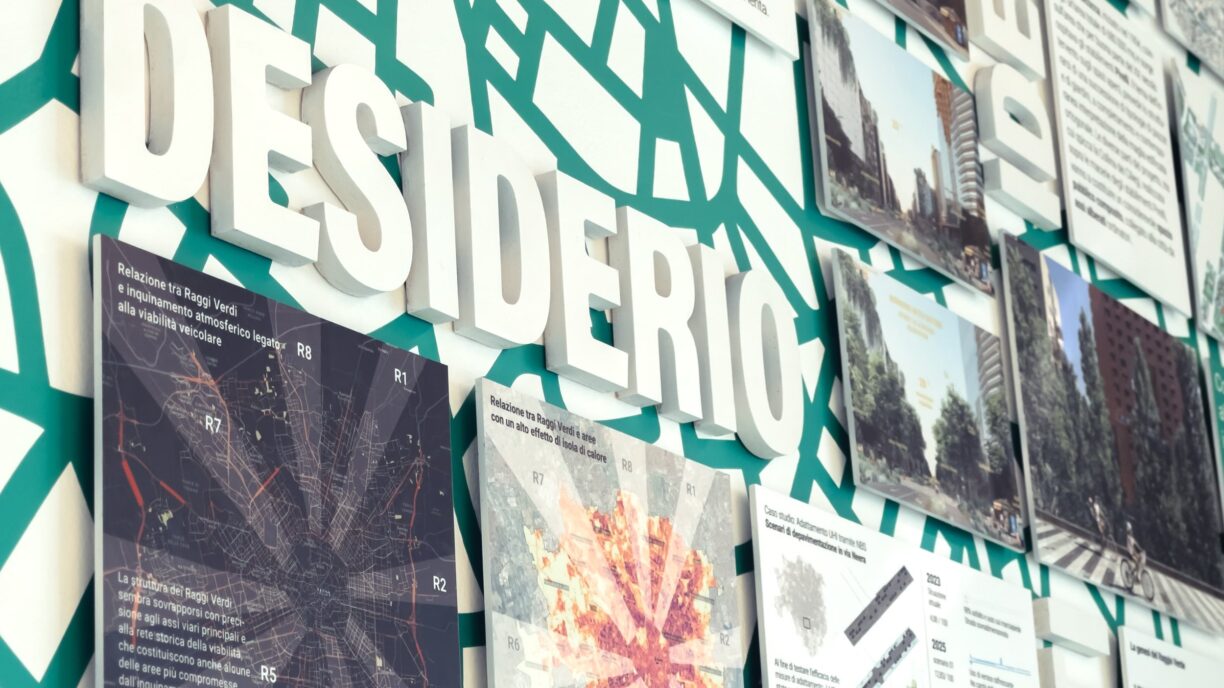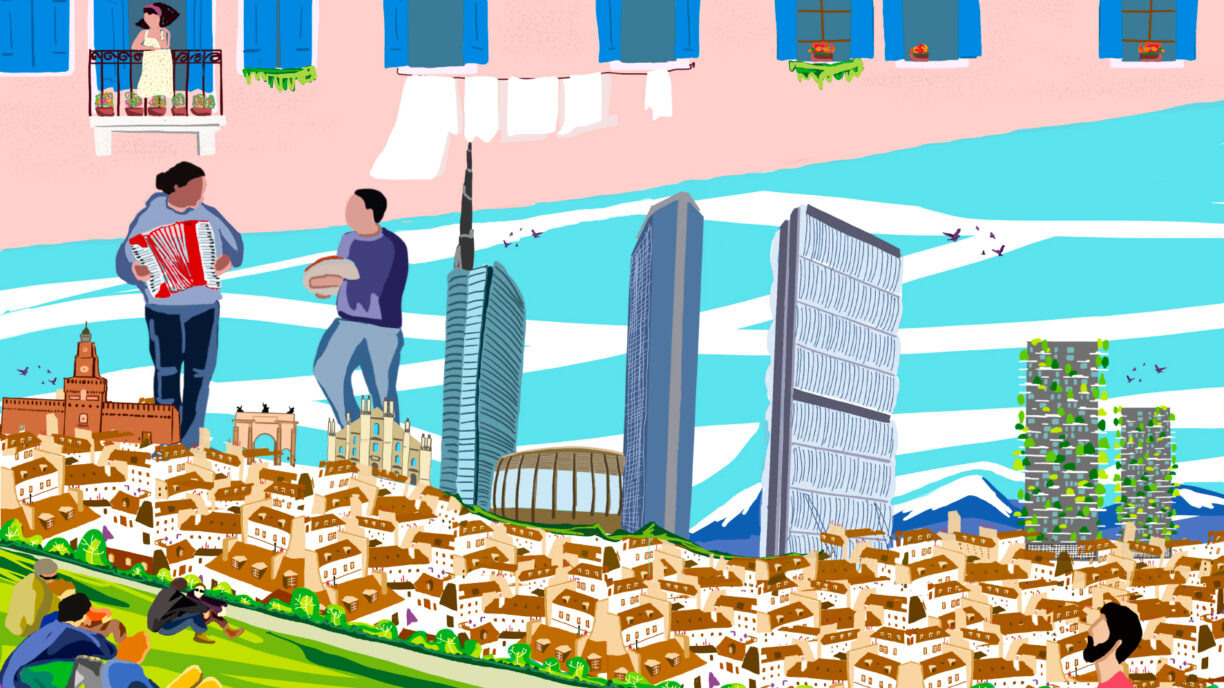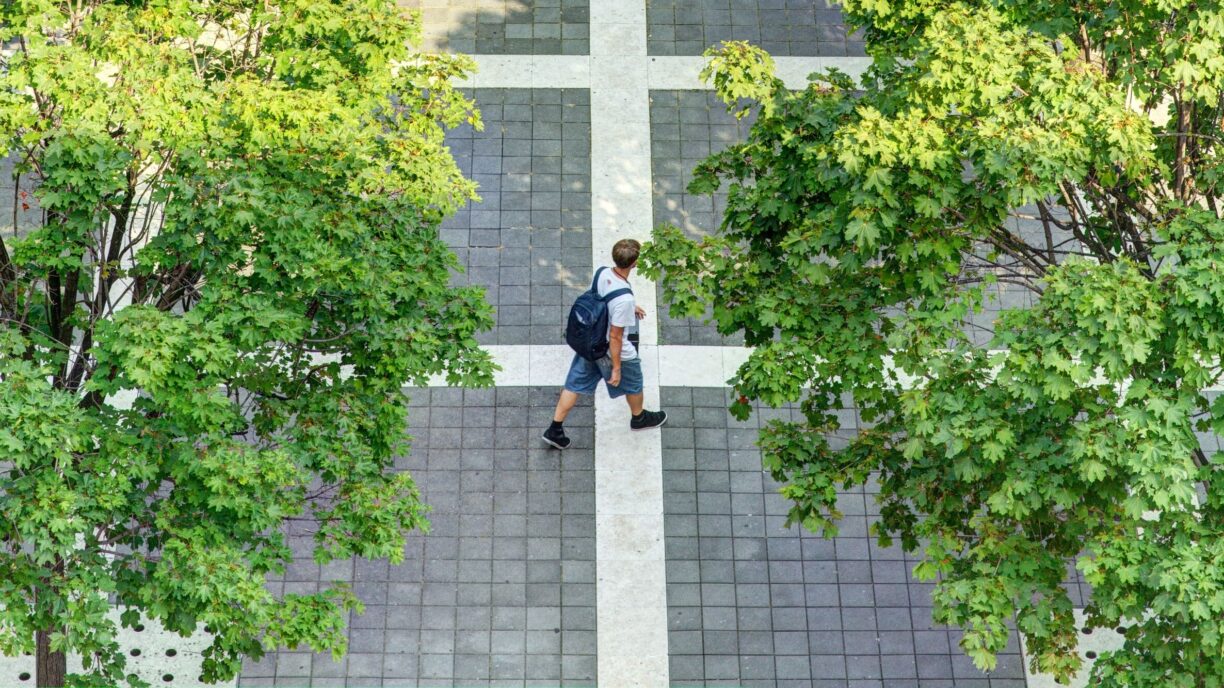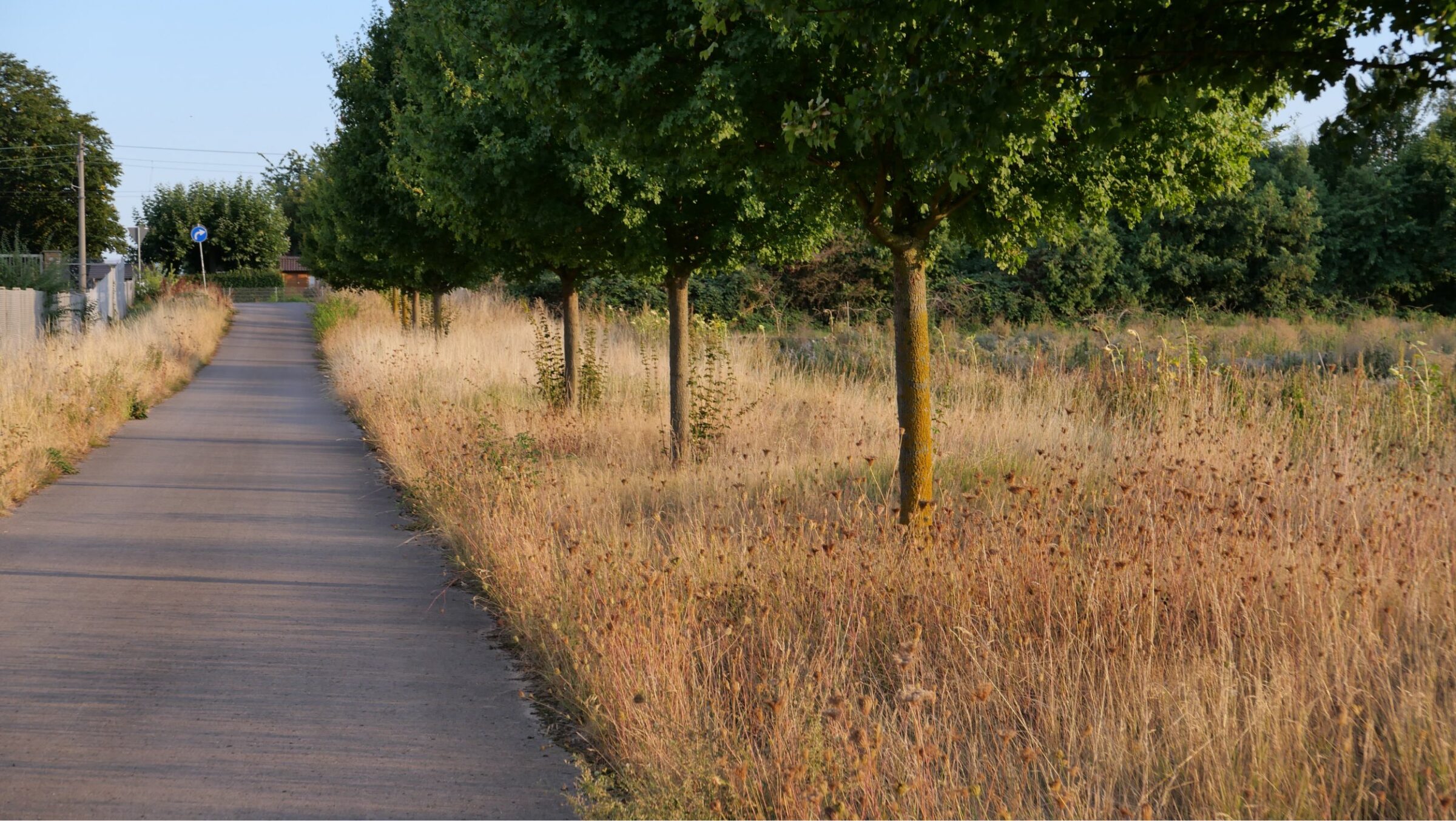
Everything is Landscape
The productive city at the center of IBA'27 in Stuttgart.
The future of building and living together is traditionally the focus of an International Building Exhibition (IBA). This is also so for the Stuttgart 2027 urban region, which was set up by the governing bodies of the city and region of Stuttgart jointly with the University of Stuttgart and the BadenWürttemberg Chamber of Architects, to be implemented by a team led by Andreas Hofer (ETH Zurich). But profound shifts in society and the economy due to the climate crisis demand a change in the way we deal with natural resources; this will have drastic consequences for the future of building and living together and will demand a new way of thinking.
IBA’27 confronts this process of change jointly with project sponsors by introducing a twofold paradigm shift. Firstly, the development of cities and regions is no longer the task of architects and urbanists alone, but a process guided by society; and secondly, the cultural separation that used to divide urban space and landscape is disappearing. Everything is landscape: the productive landscapes is what shapes our coexistence. As a consequence, the IBA reveals new perspectives on how to handle outdoor and peripheral areas, to replace the outdated image of a functionally separated city with a hybrid city of built, open, and natural spaces. This includes a series of projects related to the “productive city,” such as the “Agriculture meets Manufacturing” project developed by LAND as part of the Fellbach Agri-Park, which focuses on urban agriculture.
Here in Stuttgart in particular, the boundaries between city and country are complex and often blurred; it’s an agglomeration. In the metropolitan area, which has both very rural and very urban corners, we may be able to create something like an identity for the region.

Agri-Park project
Learning to Live with the Landscape Again:
The “Fellbach Agripark” case study in the “IBA’27 – Productive Urban Landscapes” research study.
IBA’27 in the Stuttgart metro area addresses future-oriented approaches to building and living together, especially in terms of the climate crisis. Its focus is on resilient solutions for buildings, landscapes, and planning processes, with the importance of landscape and ecosystem services taking center stage. LAND’s research study “Productive Urban Landscapes – Learning to Live with Nature Again” explores the potential of landscape in the Stuttgart metro area. It identifies areas of transformation, potential ecosystem services, and players who can empower sustainable change in managing agricultural land and urban areas through new forms of collaboration. Based on this analysis, LAND has developed a toolbox of measures to promote a symbiotic coexistence of nature and people in urban fringes and to support new collaboration models for farmers and city-makers.
These measures were further elaborated using the city of Fellbach as a case study. LAND developed the Agripark concept here, building on the findings of the IBA research study and an intensive participation process with farmers, as well as experts from the research, business, planning, financial, legal and administrative world. The Fellbach Agripark unifies previously separate agricultural, industrial, and commercial areas into a cohesive experimental field approximately 280 hectares in size. Innovative solutions for the productive urban landscape will be developed jointly with the IBA “Agriculture meets Manufacturing” project of about 110 hectares of land in the heart of the Agripark. The focus is on three field laboratory situations: the Agrimarket, the Agrilab, and the Agri-Reserve, where different players develop integrated transformation concepts for soils and buildings in order to increase resilience and the production of ecosystem services on site. Dialoguing with farmers plays a central role here, examining the production potential of soils in terms of climate resilience and nature regeneration, as well as the resulting new agricultural business models. The Fellbach Agripark aims to integrate (eco)productive, naturebased solutions in both urban areas and on agricultural land, and to demonstrate sustainable transformation models. At the same time, open and recreational spaces are planned for residents and visitors.
Similar field labs at universities, such as Center Smart Industrial Agriculture at RWTHAachen, develop methods to promote resource-regenerating cultivation. As part of IBA’27, the Agripark complements these approaches and, through the special spatial development frameworks the IBAstatus offers, demonstrates sustainable thinking, planning, and business models in the context of an existing city. The Agripark could thus serve as a cuttingedge example to inspire other regions and cities to create a future of (renewed) productiveness and climate resilience, living in harmony with the landscape.
Text: Kristina Knauf, LAND
Read other Articles from this Edition
